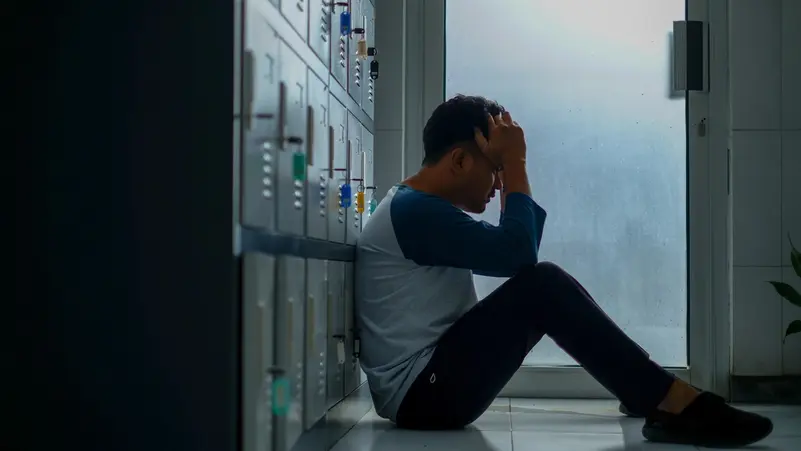
Nigeria is grappling with a growing public health emergency as experts raise the alarm over the escalating crises of suicide and traumatic brain injury (TBI) among young people.
Psychiatry, neurosurgery and child neurology specialists have called for sweeping reforms to tackle what they describe as silent epidemics with devastating social and economic consequences.
At a recent webinar convened by the Child Neurology Society of Nigeria, experts warned that the rise in suicide and brain trauma among Nigerian youth is undermining national productivity, straining healthcare resources and deepening mental health crises across communities.
A don of psychiatry at the Ahmadu Bello University and Africa lead for Lifeline International, Prof. Taiwo Lateef, said suicide remains one of the most misunderstood public health issues in Nigeria, with stigma and criminalisation obstructing timely help-seeking.
“Life is beautiful because it is a journey full of experiences that allow us to grow, learn, and appreciate the world. But many Nigerians, especially the youth, are dying silently,” Lateef said.
According to him, suicide is the second leading cause of death among African youth, and approximately 450,000 Nigerians require psychosocial support annually due to related trauma. Citing World Health Organisation estimates, Lateef said Nigeria records about 15,000 suicide deaths each year – roughly 6.9 per 100,000 people – but added that the true figure is likely much higher due to underreporting.
“We remain one of 25 countries where suicide is still a crime. This colonial relic not only criminalises emotional distress but also discourages those in pain from seeking help,” he said.
He noted that suicide often stems from overwhelming despair and hopelessness, not a desire to die.
“Each suicide can psychologically impact up to 135 people. The pain ripples across families and communities,” he said, advocating for the decriminalisation of suicide, improved mental health funding and more compassionate media coverage.
“The law will not stop suicidal thoughts. Compassion, early support and evidence-based policy reform will,” Lateef said.
President of the Child Neurology Society of Nigeria, Prof. Edwin Eseigbe focused on adolescent brain development, warning that Nigeria is failing to protect its most vulnerable age group.
“Adolescence is a period of both vulnerability and opportunity. This developmental stage, defined globally as ages 10 to 24, includes significant brain changes – particularly in the prefrontal cortex, which governs impulse control and decision-making,” he said.
Eseigbe cited research showing adolescents are biologically predisposed to risk-taking and poor decision-making, especially in environments where mental health support is weak or non-existent.
“In adolescents, the dorsolateral prefrontal cortex is activated more than in adults, making their decisions more effortful and less intuitive,” he explained.
He urged stakeholders to adopt a “whole-of-society” approach – engaging parents, teachers, media, and policymakers – to better support adolescent mental health and development.
“Adolescents must be central to achieving the Sustainable Development Goals. This group is too important to ignore,” he said.
Eseigbe referenced the Global Strategy for Women’s, Children’s and Adolescents’ Health and the WHO’s AA-HA! Guidance, which provides tools for countries to shape adolescent-focused health policies.
Touching on digital media, he noted that while some studies link video gaming in early adolescence to improved cognitive functions, others associate social media with lower life satisfaction and depressive symptoms.
“These outcomes vary widely by age, media type and research methods. We need more longitudinal studies to truly understand digital media’s long-term effects on young brains,” he added.
On the other end of the crisis, Prof. Jude-Kennedy Emejulu, a neurosurgeon, described TBI as an under-prioritised yet devastating health threat, particularly for young Nigerians.
“TBI affects the brain, not just the head, and is the leading cause of trauma-related death globally. In Nigeria, it primarily affects our most productive age group,” he said.
In 2023 alone, 6,733 cases of TBI were recorded across 14 neurosurgical centres in Nigeria. Emejulu said limited emergency services, high out-of-pocket costs, and treatment delays often lead to poor outcomes.
“For severe TBI, treatment costs can exceed ₦1.8 million – more than 1,000 per cent above the national minimum wage. Families are forced to sell assets just to access care,” he said.
He referenced studies showing surgical patients often recover faster and at lower long-term costs than those with non-operative brain injuries, who typically face longer hospital stays and complications.
“TBI’s long-term economic burden is comparable to that of cancer or cardiovascular diseases,” he added.
During the Q &A session, experts jointly called for the immediate decriminalisation of suicide and the enactment of a national suicide prevention law to dismantle stigma and increase access to care.
They also urged the government to scale up mental health funding, particularly for adolescents and children with learning disabilities, while expanding the coverage of the National Health Insurance Authority to include brain imaging, neurosurgical care and rehabilitation.
“There is an urgent need to strengthen road safety policies, increase emergency preparedness and invest in nationwide trauma systems,” they said.
The experts also underscored the importance of ethical, sensitive and hopeful media reporting on suicide and self-harm.
“Media must avoid sensationalism and instead focus on stories of recovery and support. This is essential to reducing stigma and offering hope,” Lateef said.
In their final remarks, speakers emphasised the need for strong community and parental engagement in creating supportive environments for adolescents.
“Only through inclusive and compassionate systems can we prevent tragedy and build a healthier, more resilient society,” Eseigbe concluded.

